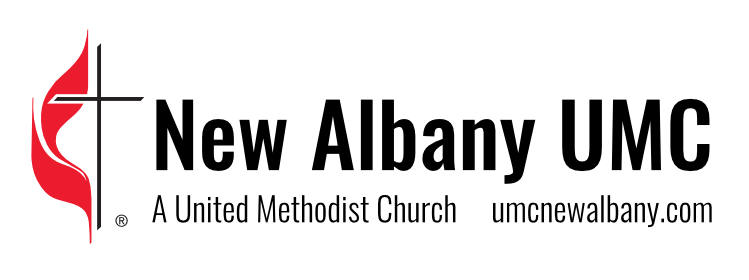Well, good morning friends. I hope you’re having a wonderful morning. This is a video that hopefully we can begin to incorporate into our midweek newsletter that Mark sends out. This is just a way of staying connected with you and continuing to share the faith, so I hope that you’ll find this brief time helpful in your daily walk.
This morning, we want to talk about something out of the book of Acts. Since we’re in the business of a new church plant, it would be wise for us to look at the earliest days of the church and to understand what were some of the most important things to those earlier followers of Christ engaged in this thing called Church.
I’m in Acts chapter two, and I’m just going to pick up with verse 42 and read a few things.
42 And they devoted themselves to the apostles’ teaching and the fellowship, to the breaking of bread and the prayers.
43 And awe came upon every soul, and many wonders and signs were being done through the apostles.
44 And all who believed were together and had all things in common.
45 And they were selling their possessions and belongings and distributing the proceeds to all, as any had need.
46 And day by day, attending the temple together and breaking bread in their homes, they received their food with glad and generous hearts,
47 praising God and having favor with all the people. And the Lord added to their number day by day those who were being saved.
That sounds kind of familiar: meeting in each other’s homes and forming that intimacy of relationship that is so vital to church. I just want to point out to you this morning four interesting things, just four very simple building blocks that were vital to the success of the early church.
You can find that at the opening of the passage. Notice that it says, ‘And they devoted themselves to…’ and then the rest of it falls in line. So, the first thing we should look at is the idea of that word ‘devoted’. What does it mean to be devoted?
Well, if you’re in the first century, the way that this word is meant within its context is to attach yourself to something. I can say that I am devoted to attending church, to serving the church, but unless that devotion is imprinted on my soul, it’s probably going to wind up being lackluster or limited at some point in time.
And so, what Luke is really driving at here are four basic things that were imprinted on the very soul of the church. In other words, to not do these things would be the same thing as not having oxygen, not having blood coursing through the body, not living essentially.
So, notice what it says, ‘they devoted themselves’ or ‘they attached themselves to’ what? The apostles’ teaching. These were the first eyewitnesses of the things that Jesus did, and so they were able to listen to those accounts and listen to those stories that shaped the mindset of this early community. They devoted themselves to the apostles’ teaching, to fellowship, which is something that we’re doing every Sunday night now and something that you all have already been doing all along, forming those relationships. Fellowship then being a pathway to not just being a church congregation, but to being a family.
So, in a family, if there is one person that is suffering, we all suffer. If there’s one person that has cause to rejoice, we all rejoice. If you’re rejoicing and I’m grieving, then in fellowship as a family, I can set my grief aside long enough to rejoice in your cause and vice versa. So, fellowship just doesn’t carry the connotation that they met and they had meals in each other’s homes. They truly functioned as a family.
The next thing we find is that they broke bread, and that’s a direct reference to the communion. Remember the eyewitness account from the apostles, which comprised most of their teaching. And so, think of it like this: if you were a charter member of this very first church in its very earliest of days, you might be in a home meeting and you might hear Peter say something like this:
“I remember last year when Jesus was arrested the night of the Last Supper and we were in the upper room and he did something very strange, and it was really hard to understand what it was. He took a piece of bread and he broke it, and he said a prayer over it, and he told us it was his body. And then he took a cup of wine and he said a prayer over the wine, and he told us it was his blood, and to eat the bread and to partake of the wine as often as we meet.
“And at the time, we really didn’t understand what he was driving at until that day of the cross and until three days later that morning when we saw that the tomb was empty. And in many ways, we don’t understand what it still means by degrees, other than that Christ is present with us, that we are partaking of his body and partaking of his blood because of what he has accomplished for us.”
So, this signals to us that in the very early days, from its very outset, the church was sacramental, and the most vital sacrament that they had was what Jesus himself instituted through the act of communion. So, communion was a vital part of the life of the early church, and every time they met, they partook of the communion.
And then lastly, you have that component of prayer. The early Church community was saturated with prayer. Everything they did, everything that they sought to accomplish, it was all based on prayer and seeking not their will but God’s will.
So, these four basic components – the apostles’ teaching, fellowship, communion, and prayer – and if you read the rest of the story, as Paul Harvey used to say, you find some very miraculous things that are happening. Awe comes upon every soul, many signs and wonders are still continuing. In other words, Jesus’s ministry is now going forward and being made manifest through this small group of people, and it’s touching the rest of the world, it’s touching the greater community beyond the living room.
Notice what happens: they recognize needs for ministry and they capitalize on the resources that they have readily available: their own finances, selling things that perhaps they didn’t need or things that they could live without in order to create meaningful ministry to touch the lives of people beyond the living room.
Notice how the story ends, verse 47, “praising God and having favor with all the people, and the Lord added to their number day by day those who were being saved.” I think the central question is to ask ourselves how were they being saved? Was it just simply a question if somebody was telling them about Jesus?
Well, obviously it had to be part of that. But salvation is not just a component of what is said through testimony. Salvation also flows directly from Christ and through the life of the church to touch those who were lost, those who are broken, those who are hurting, those who were in need of being saved.
So, my friends, as we continue forward in our little group and in our little church, may we consider these four building blocks as paramount to how God is guiding us and how God will add to our numbers. God bless!


